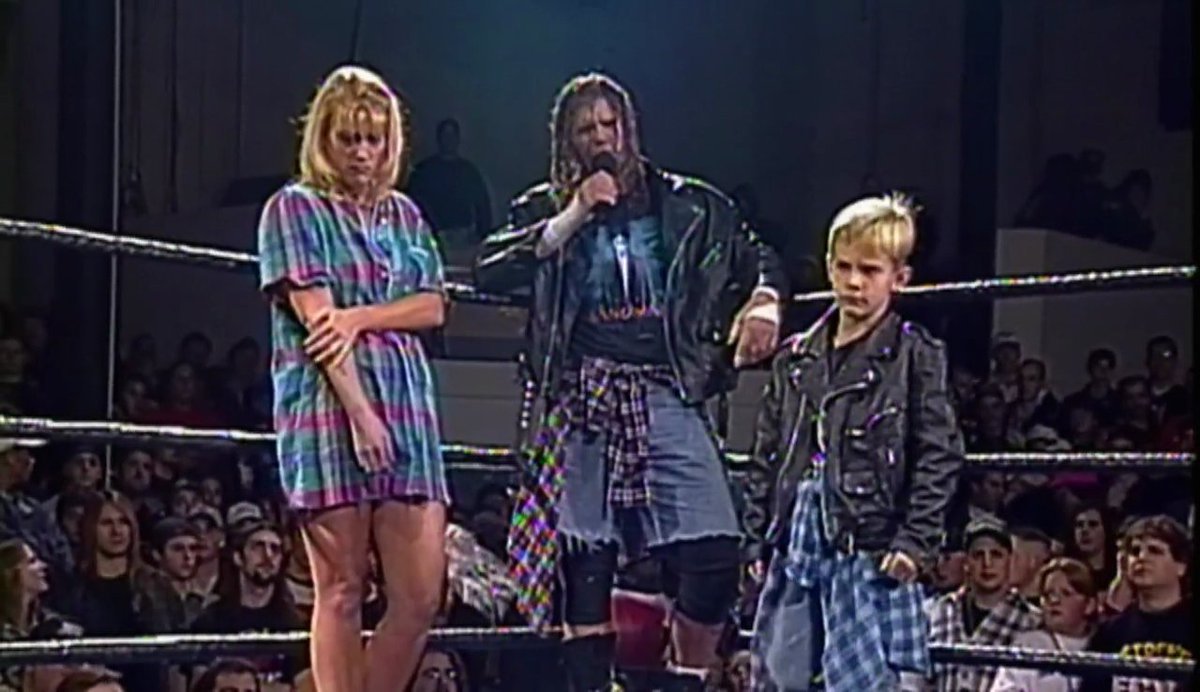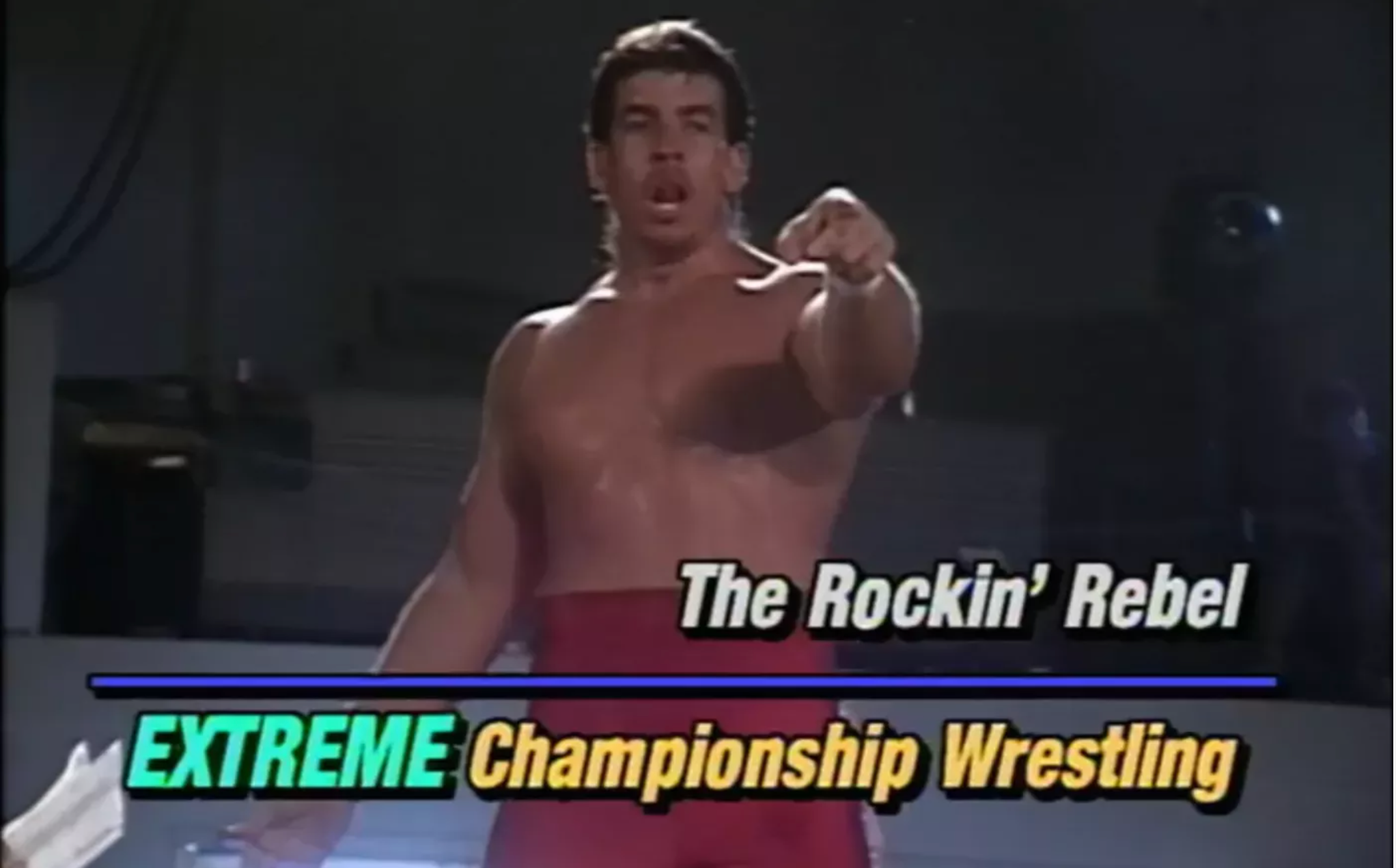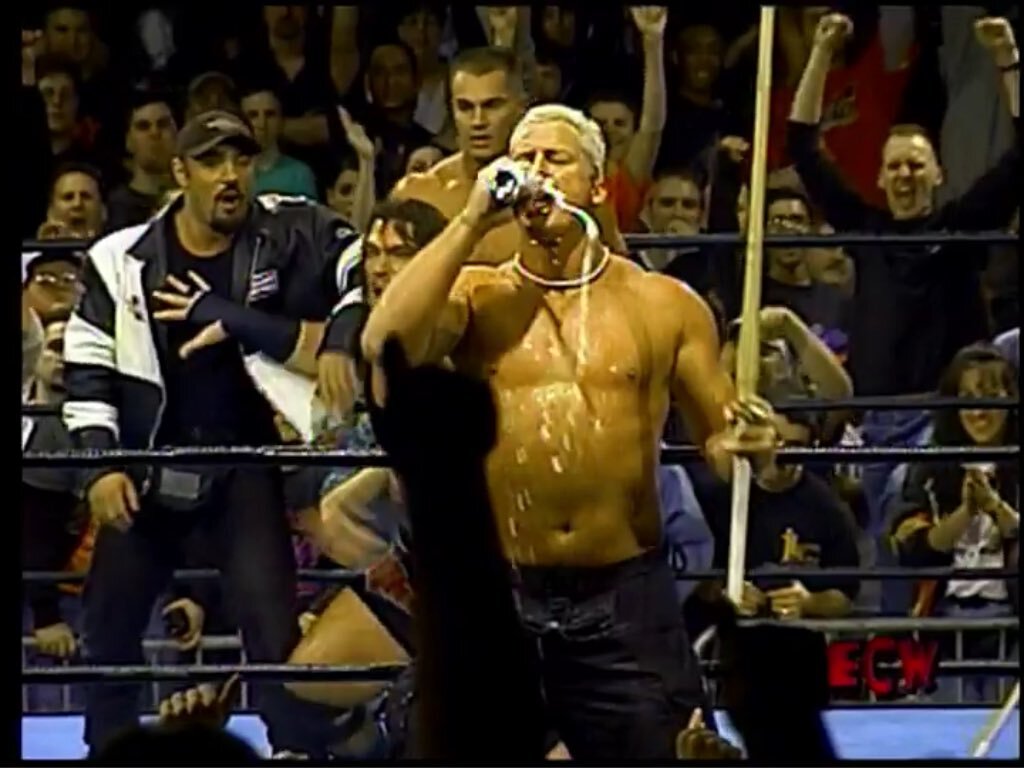Raven: The Untapped Potential for Molding WWE's Next Generation of Superstars
Many names come to mind when considering the wealth of knowledge that the previous generation of wrestlers can impart to the rising stars of today and tomorrow. Most often, the legendary Dusty Rhodes is the first to be mentioned. While it's true that few could match The American Dream's impact on the next crop of superstars, there is one name that is often overlooked but could potentially have a profound influence: Scott Levy, better known to fans worldwide as Raven. This article will explore why Raven would be an exceptional mentor at the WWE Performance Center.
It's well-known among those familiar with the business that Raven has always been regarded as one of the sharpest minds regarding psychology and the art of turning nothing into something. Although his early career was spent under various monikers and generic gimmicks, such as Scotty Flamingo in the nascent days of the WCW Light Heavyweight division (later renamed Cruiserweight) and as manager Johnny Polo in the World Wrestling Federation, it was during this time that his deep understanding of the business became more evident, as he concurrently worked as a producer and commentator for taped episodes of Superstars.
However, his subsequent move would cement his place in wrestling history. His transition to ECW and the creation of the Raven character propelled him to stardom. In collaboration with Paul Heyman, the duo crafted one of the most dynamic, engaging, and cerebral characters ever seen in wrestling. Raven's long-term storytelling and rivalries with Tommy Dreamer and The Sandman have become the stuff of legend. While the Raven persona would persist and even capture several notable championships in WCW, WWE, TNA, and Ring Of Honor, the magic of his ECW run remained unparalleled. The depth of knowledge and experience gained from this period is one of the primary reasons why Scott Levy would be an outstanding coach at the Performance Center.
With over three decades in the business, Raven has worked in various environments and with numerous bookers and offices, granting him a multifaceted perspective on the industry. This invaluable insight is something he could share with new talent, allowing them to learn the myriad ways to present themselves as in-ring performers and conduct themselves professionally backstage and when interacting with fans.
Moreover, the cerebral and intense style of wrestling and psychology that Raven mastered is a rare commodity. Apart from the likes of Jake 'The Snake' Roberts, there may be no other active wrestler who can convey the intricacies of portraying a dangerously intelligent character willing to go to any lengths to secure victory. This psychological approach has been sorely lacking in recent decades, with the late Bray Wyatt being a notable exception. Imagine a young talent with a penchant for a more compelling wrestling style learning under Raven's tutelage, crafting a character that could terrorize viewers and opponents alike with every tool at their disposal. This could be a surefire path to success if booked and executed correctly.
Raven's ability to captivate audiences and draw them to arenas cannot be overstated. During the mid-90s, a period marked by an absence of interesting characters, Raven emerged as a breath of fresh air, a force of nature that demanded attention. Even those who may not have been fans of Scott Levy or his in-ring work cannot deny that he is one of the most compelling orators of the past three decades. His laid-back, almost monotone delivery had the power to transfix viewers, rendering them unable to look away from the screen. The knowledge and ability he could bestow upon young talent, teaching them to forge a genuine connection with the audience, could be the key to transforming a struggling performer into a must-see attraction. Countless characters over the years have attempted to emulate Raven's essence, but have often fallen short in their ability to project themselves on the microphone or in backstage vignettes with the same level of authenticity and audience engagement.
Consider the potential of someone like Joe Gacy in NXT or Malakai Black in AEW collaborating with Raven to refine their skills and discover that elusive 'it factor' in their verbal delivery and overall presentation. The wisdom gained from such a partnership would undoubtedly elevate them to new heights.
Imagine a young wrestler blessed with incredible athleticism and in-ring prowess but who struggles to captivate the crowd during promos. Under Raven's mentorship, this talent could learn to channel their unique personality and background into a mesmerizing persona. Drawing from real-life experiences and emotions, they could craft a character that resonates with the audience profoundly, imbuing their matches and storylines with unparalleled depth and meaning. Raven's guidance could be the catalyst that unlocks their full potential as a performer.
All of this is without even delving into Raven's keen mind for booking and his understanding of the inner workings of the professional wrestling business. Having collaborated closely with a visionary like Paul Heyman during ECW's heyday, it would be impossible for Levy not to have absorbed some of that creative brilliance. His work in WCW and TNA over the years is a testament to this fact. Although his WWF run in 2000 was hindered by an apparent disdain from the paragon of virtue himself, Vince McMahon, Raven's stints outside the Fed have demonstrated that his understanding of the business is far superior to many of his contemporaries. One need only look at his time in Ring Of Honor, where his feud with CM Punk not only breathed new life into Raven's career but also established Punk as a future superstar in the eyes of many. Punk himself has expressed gratitude for all that he learned from Raven, a sentiment that surprised the man who thought their creative differences had gone unappreciated. If Raven can play a role, however small, in shaping one of the biggest names in the business, one can only imagine what he could achieve with the full backing of the WWE machine.
This brings us to a final point that could make Raven an invaluable asset to the Performance Center. It is no secret that Raven has battled the infamous "personal demons" that have plagued so many professional wrestlers. Yet, through perseverance and perhaps a touch of sheer luck, Raven has always emerged on the other side of these struggles. Why does this make Raven an asset? Given the staggering number of talents, both past and present, who have faced their own battles, having someone who can openly discuss these challenges and offer strategies for overcoming them would be an undeniable advantage.
Raven's extensive experience navigating the treacherous waters of the wrestling industry, both inside and outside the ring, could serve as an invaluable resource for aspiring talent at the WWE Performance Center. His ability to share the hard-earned lessons gleaned from his personal struggles and triumphs could guide the next generation of superstars as they confront the inevitable challenges of pursuing a career in this demanding field. By candidly discussing his battles and the techniques he used to overcome them, Raven could become a beacon of hope and a wellspring of wisdom for those grappling with similar demons, helping them to find the strength and resilience needed to persevere and realize their dreams.
Having worked in nearly every facet of the business, from top-tier promotions to grassroots indie shows, Raven has amassed a comprehensive knowledge of navigating the industry while addressing external challenges and adapting to the nuances of each level of competition. He understands the art of presenting oneself on television with and without the powers' support. This knowledge could be invaluable to talent just beginning to grasp the complexities of the professional wrestling world, helping them to avoid pitfalls and seize opportunities they may have otherwise overlooked.
Will we ever witness Scott Levy gracing the halls of the WWE Performance Center as a mentor? The odds may be slim, but then again, the notion of Bret Hart or CM Punk returning to a WWE ring once seemed equally implausible. Yet, hell has frozen over twice before; perhaps the third time will be the charm. Regardless of whether this comes to pass, it is always intriguing to ponder the possibilities and the potential impact such a move could have on both the talent and the business.



